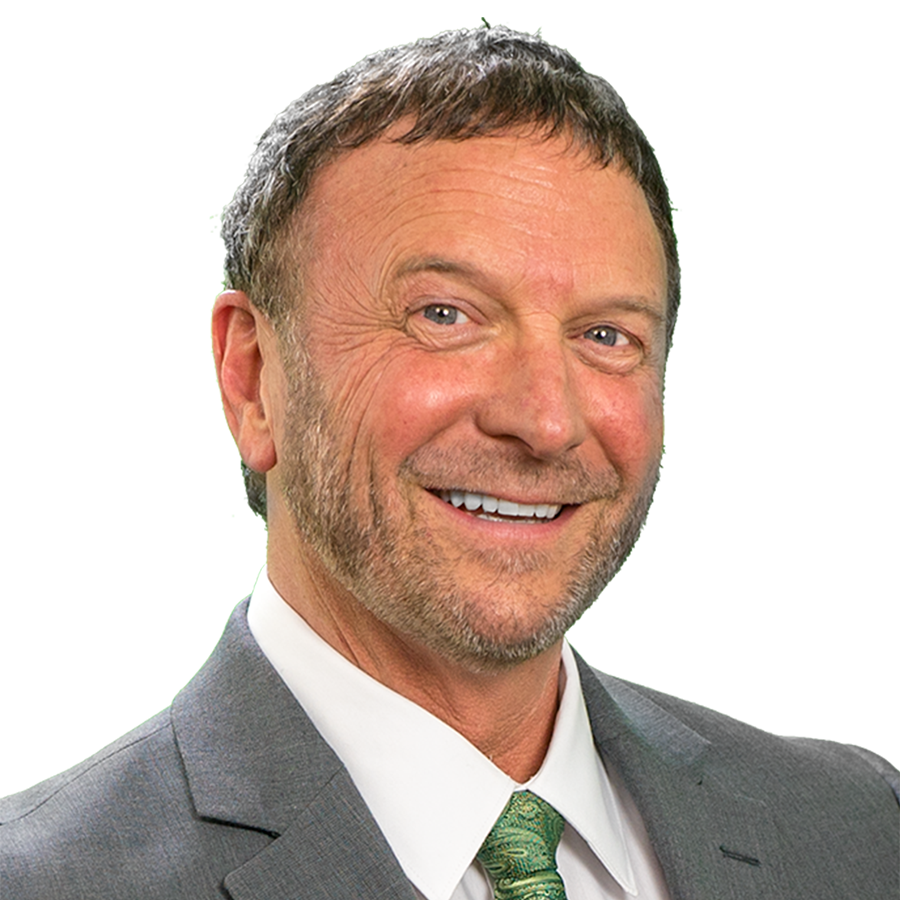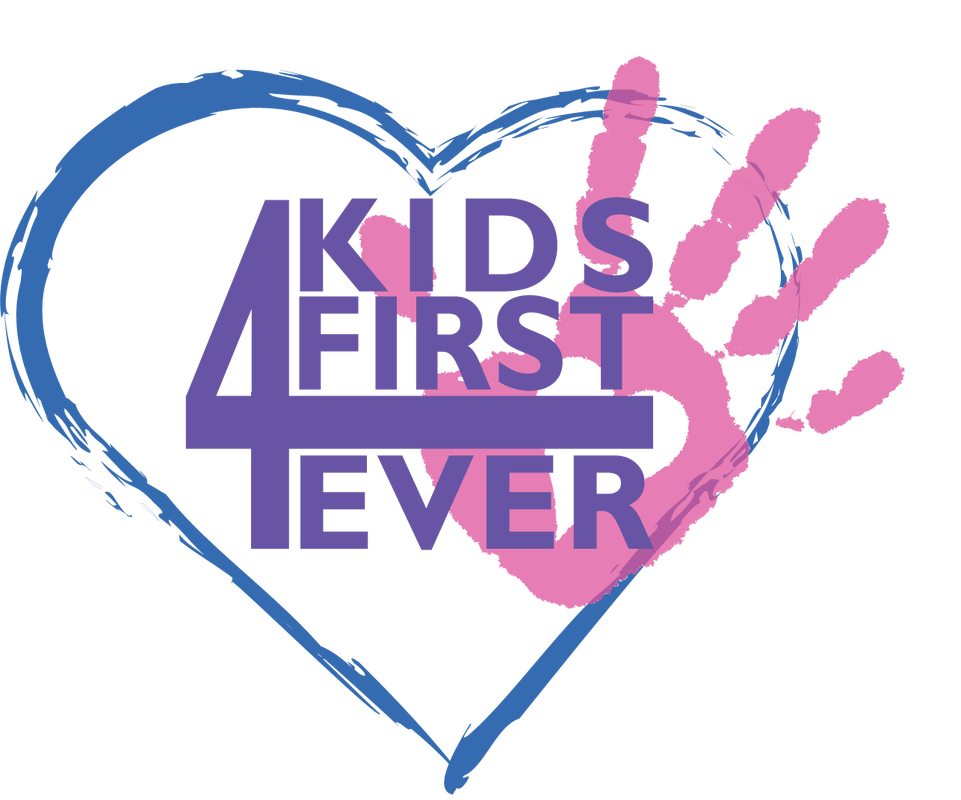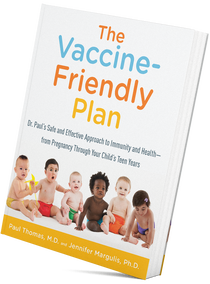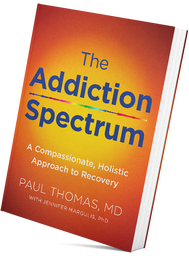PDF:TEXT:Dr. Paul 0:00
Dr. Paul Welcome to against the wind doctors and science under fire. Today's show, I am talking with Dr. Monique Robles. She is a board certified pediatric critical care doctor. I mean, these are the doc's who take care of the sickest of the sickest kids. She happens to also have a master's in bioethics. put those two together. And we've got a dynamite interview, we talked about what led her into medicine, pediatrics, critical care and ethics. But then we get into the COVID vaccine for kids. And for people in general. She's got an interesting take on this, you're not going to want to miss it and she gives some information for you, the parents and the grandparents. Bernadette closes us out with social marketing. Did you know that doctors Yes, even doctors like me, have been trained on how to coerce patients in the being vaccinated. It's a technique called the presumptive process. We're going to discuss that as well enjoy the show. Dr. Paul, coming to you from the heart. Today I started my day by picking a stone from an inspirational Stone Collection. Guess what I picked? Serenity? Boy did I need that today? This was a day I had to sign something to the for the board that was dealing with four years of stuff I'm going through and I just needed to be reminded. That was the Serenity Prayer says, God, grant me the serenity to accept the things I cannot change, the courage to change the things I can and the wisdom to know the difference. Wow, did I struggle with wisdom there and trying to sort that all out. I hope that little serenity prayer reminder can be of some help to you with whatever you might be going through. I also wanted to touch today on surrender and gratitude. I've learned so often that I must surrender to get free to be free. And you need gratitude to overcome resentments. What we resist persists. This is something I've learned from many of the great heroes, whether we're talking St. Francis of Assisi, Gandhi, MLK, Nelson Mandela, they've all shared that same message. Our world is in a crazy power ego control cycle that just seems to be endless. How do we break through that? We talk about it here. It's love. It's being able to just love others and look for their spiritual goodness that's within them. That's what I strive for. I hope you join in that journey of love and breaking through. We can do this welcome Dr. Monique Robles, you are somebody I didn't know about. And I'm just so excited to have you on against the wind. Thank you so much Dr. Ball for having me. It's such a pleasure. Dr. Monique is board certified in pediatric critical care. So you go through a whole pediatric residency, then you go through this very long critical care residency. On top of that you have a master's in bioethics. Beyond that you became the chief resident. And that is, folks again, it's only the top top folks who get to be the chief. So we are looking at a cream of the crop doctor here and it is such a delight to have the combination of you've been in pediatrics, you've been in critical care, and you have an ethics bioethics background. We need that today. So I'm really looking forward to kind of picking your brain a little bit about what's going on in our world. I know you're on the advisory board of the truth for Health Foundation, I'm watching what that organization is doing, trying to get great information to families and parents. The Council of Catholic preservation of life advocates for protecting children. You speak internationally on gender affirming therapy, gender ideology, COVID mRNA products and what sets doing for kids. But I'd like to start off with I always get to know people best when just share a little bit about your background. What led you to pediatrics What led you to critical care? Monique Robles, MD 4:15 Sure. So I grew up and a little rural replace and Texas there were four of us and children. And my oldest sibling and youngest sibling have Down syndrome. So yeah, so so really from the get go from the cradle, I guess is I understood what it means to be with someone who's different. So I originally when I was younger, wanted to be a veterinarian, so I guess medicine, right? Take your animals, and then I transitioned to maybe it'll be a physical therapist because I had this I did athletics and I had this amazing physical therapist and just his example, was, in helping me through injuries was something I thought, wow, I could help people this way. So when I went to undergrad, it wasn't very long that I was like, Well, I'm just gonna go to medical school. Just keep going. So I went into medical school, I really can't recall Dr. Pol. Any other specialty other than pediatrics, whether, you know, a subspecialty of Pediatrics, but I should say any other field really, other than pediatrics. So I started my pediatric residency, thought I was going to do pediatric hematology oncology. I, there was something about really sick children that drew me. But at the end of my intern year, so my first year, I did my, that's when I did my pediatric critical care rotation. And I was like, you know, the, the lights went off. And I was like, I'm in my element. And I'm the only one who gets an adrenaline rush gets excited when the code pager goes off. Everybody else runs the other way. Something's wrong with me. Dr. Paul 6:26 Funny, I loved critical care, I would have done it except I knew I wanted a big family. And I just saw the lifestyle of the critical care Doc's I mean, you're you live at the hospital. Monique Robles, MD 6:36 Of course, I'm working some nights, some days and flip flopping all the time, right, but but when I was there, I was there. When I was home, I was home, Dr. Paul 6:45 and you're having siblings with Down's that just makes it clear to me why you might choose pediatrics, and also why you might choose ethics. What led you though, besides the obvious, were there any other issues that led you into the ethics part of your career? Monique Robles, MD 7:01 So I didn't go back and receive my degree in bioethics until after I'd been established in critical care. But it was one of those like, you know, sometimes it's not the the grandiose moments that are like, Oh, this is life changing? And now I need to do this? No, it's just this little thought of, you know, I think it would be better if you were able to articulate these situations, because I mean, obviously, in critical care you're dealing with, with very complex situations, oftentimes life and death decisions. How do I maintain my child in this chronic condition? You have discussions about withdrawal of life support. So I knew in my heart what to do, but sometimes articulating that is not always that easy. And so I thought, well, then I will go in and pursue this career and borrow at least this degree in bioethics, and it will only enhance me I'm not sure where it's gonna leave, but I think it will help me with my patient care and the families I take care of, and my decision making as well. So Dr. Paul 8:21 yeah, what would you say are the key ethical issues that we're facing today? Say, let's just go ahead and stick with pediatrics and sort of family dynamics or whatever? Monique Robles, MD 8:32 Absolutely. So I have seen and, and I think you would agree that over the past several years, I have seen a I don't want to call it a direct attack, what I see an agenda where parental rights are being chipped away parent has to ask earning the adolescent to see his or her records, get this, this child really doesn't even understand what's going on a good portion of the time. And the child is being taken care of by this parent or guardian, as well as the parent or guardian is the one paying for all of this medical or is ensuring all of the medical care. So I have seen that infringement on parent parental rights, becoming more of a bigger player sort of in the field of Pediatrics, which is very concerning. Dr. Paul 9:36 Yeah, absolutely. I was reading about a law just passed in California were in grade schools now all the way K through 12. The state is going to raise the children and make vaccine decisions and reproductive health decisions. It's like oh my goodness. Monique Robles, MD 9:53 And that that to me is is absolutely anti what our country has about We are either the parents and the and the home is the initial school, right is the primary, we are the primary educators of our children. And so I find that very concerning. And it's detrimental not only to family, but to children, too. It's a separation of the child from their home environment, which is mentally distressing. Dr. Paul 10:28 Absolutely. I'm curious, your organization that you're on the advisory board advocates for protecting children, does that deal with any of this? Monique Robles, MD 10:37 It deals with gender ideology, it's really an organization that goes up primarily against the gender industry and the attacks on our children. So Dr. Paul 10:51 yeah, elaborate a little bit for our audience. I know for some people, this gets controversial, but I mean, you you come from a pediatric background, you come from a caring family, a loving family that wasn't going to abort a Down's baby, obviously. So you have a deep love of life and humanity. I come from a missionary background. And, and so similarly, we have, we have some similarities and in just loving people and all that. But what's happened, and I'm sure you've seen it in your career, it feels like the last 1015 years. More and more adolescents, especially have this gender identity confusion. And man just wasn't seeing it the first 15 years of my career, but the last 15 It's like, exponentially it's exploding. What's going on? Monique Robles, MD 11:53 Yeah, so. So if we look at sort of the timeline of events, really the first gender ideology clinic opened in 2007, here in the United States. And this was a lot of this was already happening in the European, the Netherlands, and, but the idea of be having genders instead of and taking away that definition, true definition of sex was incorporated in 2007. And, initially, the the gender affirming therapy had basically three steps to puberty blockers, oh, let's give them time to decide. So we're going to halt puberty and let them consider what which, which way they're gonna go? Is it going to be male, female, or some spectrum in between. And then once that decision was made, then the next step was cross sex hormones, and then gender reassignment surgery. But as of, you know, in the past, probably decade or so I would say, there is now an initial step. That's been added social affirmation. And so social affirmation begins outside of the metal, out of metal, medical, the medical field. So we're seeing the initiation of this in preschools, kindergartens, schools. And so it's a child at a at a very young developmental age, who does not understand does understand the difference between boys and girls in a in a, in an in a normal IQ for that age. But still is, is in a developmental stage where they can go back and forth and play with different things. The concern though, now is that the, the ideologues have created even more rigid stereotypes. So if you're a little girl, let's say you're three or four, and you want to play with trucks, oh, you must be a boy. And vice versa. So they have actually made the stereotype so rigid, and then funneled these children and then just as we were talking, many parents don't know what's going on in the schools or don't know what's happening. When they're not in the presence of the educators, you know, I felt the calling because I was like, somebody's got to speak up for these children. This is absolute confusion. And I did start to see some I got to the point where I did see These adolescents in the ICU from from overdoses or suicidal attempts, because of lack of understanding who they are, and the lack of addressing from the medical personnel, the lack of addressing these individuals mental health problems, and their history of trauma and abuse. Yeah, it's, Dr. Paul 15:32 it's very concerning to me as well. It almost feels like when I read our literature, the pediatric literature, that the cool thing to do the right thing to do is to jump on this bandwagon. And that's the first sign of any kind of confusion, we've got to support them in their confusion. And I feel like we're not guiding them through in a very neutral way. It feels like almost our peers are, are pushing people towards. Yeah, you need to right. Or wrong on that? Or is that? Is that what Monique Robles, MD 16:10 you're saying? though? That's I mean, it's a it's a it's a political move. Right. And it's, I've we are we are, we are allowing, I don't say we as in you and I but in the med that professional medicine has been weaponized against children. from a political standpoint, and ideology standpoint, and we know that watch, and wait, let them progress, do not stall a child because then you further isolate that child, once you start puberty blockers, they're not going to catch up with their peers. So you've isolated them even further. Yep, agreed. And you've left them, you've actually abandoned them, and you've left them in a confused state. So, Dr. Paul 17:04 no, I absolutely agree. And then, you know, I only had one situation where a 16 year old was wanting surgery. And I was like, going to all lengths to just develop a relationship, let's just give this time see if you still feel that way, in a year or two. It just seemed like such a rush. Monique Robles, MD 17:26 Well, and it's, uh, you know, these are, these are truly forms of malpractice because you're performing surgical procedures. On healthy children, there's no pathology. Yeah, there's no, you know, pathology. And so there the the issues of of not being not having addressed the reasons as to why this individual has come to this point. That is sort of the atrocity of all of this is that you have not cared for the patient. You've just gone along with, with their misunderstanding who they are Dr. Paul 18:10 the classic label and treat that we do in medicine. Well, Dr. Monique, let's pivot to vaccines and COVID. Yes, we're both pediatricians. And our background is, you know, vaccines was the most important thing we could do, to, you know, boost immunity protect kids from vaccine preventable diseases. And I'm not saying that vaccines are good or bad. I'm just saying, traditionally, the pediatric community has been all on full court press, safe and effective. We don't look at any downside. It's all upside. Then comes COVID. And this vaccine that had never been done before, but just share with me a little of your history on vaccines, and then how you've dealt with COVID Monique Robles, MD 19:03 Sure, I think I'm, I agree with you, like most pediatricians, we have been taught this way. And we have been in full force for the vaccination schedule for the immunization schedule. And so the when COVID came about in these injections, I began to question I was like, wow, this is you know, it's it's mRNA is going around this technologies. You know, Malone has been working with it for few decades, but but we it never worked. It didn't work in the early 2000s. And so all of a sudden we're gonna develop these this these injections in a warp speed with not the usual multiple years of safety data and studies and we're going to Um, release this into a mass population event after, you know, two and a half months of trials. Yeah. And not, isn't it? It's not it's not like any other technology or any other vaccine that we give children. Hmm, big question mark, a big red flag goes up and I that this doesn't seem right, right? This where? Where is the ethics in this like, I'm so and the more I read, the more I looked at the possible and the potential consequences like not good consequences bad consequences of this technology being released into humans. It that's what spurred me to, to question more. These injections, the politicization of this, it's made me look at other vaccines and their histories. And many, much of the censored studies, the censored documentaries that have that, that we just didn't know about, or, or if you if you, you know, when you're in a busy career professional, you you go with what you're taught and trained. Yeah. And so now that I've now that I've been able to start looking back, it has made me question so much of what I have been taught and what I have advocated for, with the vaccination schedule. Dr. Paul 21:49 Yeah. Well, that's the gift of COVID, I think, is such a disastrous rollout of a dangerous product that has, and my assessment, and you can see if you feel the same way, but the risks are just so huge compared to the negligible benefits if there are any at all. Monique Robles, MD 22:10 Right. I just I don't see. Yes, absolutely. There's no benefits for children. There's absolutely, yes. What I say there's, there's no benefits, it's all risk. So why would you unleash these products on children, Dr. Paul 22:26 given that situation? And we'll have the fall is coming right in pediatrics, every fall, it's flu season. Gotta get your flu shot six months and above. And I won't be surprised if they're gonna push the COVID Jab, either make a combination flu COVID Or just so you need both. You need both. And they're gonna probably require it for schools in many places. Monique Robles, MD 22:53 Yeah. So that Yes. And and how can you? You know, it's interesting because they do the all these trials, but they didn't, you know, the placebo group was unblinded, so quickly. Sure, so there were there's a control group, and the group that received the COVID injections. What happened within gosh, probably within a couple of months, after the the trials took place, at least for the the 511 year olds, they were unblinded meaning they took the the the the basically the blindfold away from the individuals who are running the trials, and those who were in the placebo, or the the group not receiving the injection, were allowed to crossover and receive the injection and we're Yes, and we're, we're X actually encouraged to so. So we have no control group. And and there wasn't any control for what these injections were any potential side effects with other vaccines as these children were getting, especially when they were doing the trials in this six months to just under five years. So there are so many factors that weren't even looked at. And so for us to move forward, and it's still experimental. And to start giving it with it, yes. Yes. And it's it's sorry, it's it's experimental and still emergency use. So, to move forward and now, act as if, well, it's just going to become part of the mainstream schedule, and we're just going to inject these children with this and their flu shots are and all their other vaccinations really is asking for disaster. Dr. Paul 25:09 Yeah, it almost feels like true human experimentation. I mean, you're taking Healthy Kids and injecting them with a dangerous product, and we'll see what happens. It is. So, Dr. Monique, I'm gonna pick on your ethicist. kind heart background and help me out with something. I have a challenge talking to people in a convincing way to do what seems obvious to me. And my own mom says with this COVID thing when I'm trying to talk her out of it, basically, she goes, Well, Paul, how can you be right and everybody else is wrong? And don't you get that from parents and colleagues? What do you say to that? How do we talk to people? So maybe they can listen or hear? Monique Robles, MD 26:00 Yes. So first of all, Paul, I want to say, you've been you say you've been fighting it? I would say you've been critically thinking now going back to your question of how to how to address individuals who just don't see your PSA are difficult to, to, to speak with. I think people like like any of us, they want to be heard, right? Sometimes it's just listening, what is it, they're really thinking and I need to listen to their viewpoint, and then more will come out rather than me, shutting them down right away with what I know to be, you know, what I think and know to be true? Because they're not going to open up if I do not allow them that opportunity to bring their stance. Dr. Paul 26:59 Okay, so play along with me, I'm going to be your colleague and money guy to the test. I heard you've gone off the deep end. I mean, you should know better. You're an intensivist. You used to be the used to be chief resident. I mean, come on. What's What's this, you've gone on to these joint all these anti vaxxers? And you're talking about COVID? Dangerous? I mean, what what gives? Monique Robles, MD 27:30 Well, first of all, you said I've joined anti vaxxers. Why do you call me an anti Vaxxer? Dr. Paul 27:36 Well, I mean, anybody who doesn't know that vaccines are safe and effective. I mean, you you know, the WH o the World Health Organization, declared that, you know, vaccine hesitancy is one of the number one dangers in our world. And you seem to have become vaccine hesitant. Monique Robles, MD 27:57 So are you specifically speaking about the COVID vaccine? Dr. Paul 28:03 Well, in this instance, sure, because we haven't had a long enough conversation for me to pick your brain on some of the others. Monique Robles, MD 28:11 So do you think the current technology that's used in these products, the mRNA, the viral vector, these are similar to other vaccinations that I've been advocate for? In my career? Dr. Paul 28:29 Well know, we know this is this new and very, very sophisticated, deep science that we've been working on for decades. So yeah, absolutely. It is new, but new isn't necessarily worse. In fact, a lot of times it's better. Monique Robles, MD 28:48 Well, and how do you define a vaccine? If this is new technology, it should meet the requirements, the definition of a vaccine? Dr. Paul 28:58 Well, you know, a vaccine will enhance your immunity. And I clearly this is doing that. Monique Robles, MD 29:09 And it should stop transmission, right? Because that's the whole point, right? We don't want to spread the disease to to our neighbors, and and we want to end this pandemic. So it should stop the transmission to correct. Dr. Paul 29:26 If you had a perfect vaccine, sure. But you know, nothing's perfect. At least we're enhancing people's immunity and we're saving lives and you know, what we could have, we would have lost millions more probably if it hadn't been for this amazing technology. Monique Robles, MD 29:44 And do you agree that the vaccine should prevent the disease as well? Dr. Paul 29:48 That would be nice. I agree with you there. Monique Robles, MD 29:52 So unfortunately, these COVID injections, the mRNA the viral vector or vaccines have not or injections, I'm going to call them injections because they are not vaccines, they have not prevented transmission, even though the CDC touted, they would, and the FDA touted, they would and now they have, through the through time have had to backtrack because they don't, they have not prevented the disease. So individuals who have been boosted who have received multiple injections are faring worse than those who have not received and they have not prevented the spread. As you will see, the COVID continues. Dr. Paul 30:46 And thanks for playing along with me, Dr. Money guy. I could push harder, but that wouldn't be fair on you. I didn't give you any warning that I was going to torment you. Monique Robles, MD 30:53 That's okay. This is this is good. It says, you know, it's kind of like being in a court. You gotta you gotta be able to stand up for these. Dr. Paul 31:02 Yeah, it's it's honestly, it's, it's one of the hardest things I have is when I don't know, I think I have a glitch in my ability to just stay completely calm all the time under attack. Right. And you stayed calm beautifully. So Monique Robles, MD 31:18 maybe that's my little fine tune just from my experience in a in a critical care setting. Dr. Paul 31:26 Yeah. Now, have you personally faced any sort of pushback for your position on COVID? Monique Robles, MD 31:35 Yes, the policy of my institution was basically that everyone would be mandated to receive the COVID injection. And I did not comply with that policy, I was not going to get the injection based on my conscientious objection, which was my conscience was formed not only by my faith, but also by my experience and my research, that these were experimental products. And I'd already been taking care of kids for a year and a half into this pandemic. So I did did not receive the injection. And thus, I was terminated because of that decision. Knowing full well, the consequences. Yeah. I made that decision to not to not take to not take it, and then I wouldn't, I wouldn't have changed it look, looking back. I am 100%. Secure with with my decision. And especially now, you know, what, maybe a year later, so. Dr. Paul 32:58 So folks, if you work in critical care, you work in a hospital setting and to get fired? Like you can go open your own little critical care unit. Monique Robles, MD 33:09 Correct? Correct. I Dr. Paul 33:11 mean, that's a huge blow to your career. How, how have you? How have you dealt with that? Monique Robles, MD 33:17 So So I see sometimes when, when there's an abrupt change, that's because something greater is coming. So that's the way I've seen it. And so I, I have this great trust that God has this amazing plan. And I mean, it's already things are starting to unfold, I look like I'm getting to talk to you. I work with the truth for Health Foundation, which has been really on the front lines of of helping individuals receive early treatment, helping those who've been basically imprisoned in hospitals, helping families, helping the military. And, and, you know, with me being part of the pediatric forum them we've been able to reach out to parents to help give them the information that's that's often censored, or they haven't heard from their own providers. Dr. Paul 34:24 Thank you for your courage, and your faith. Wow, I just got a warm spot for you for sure. And such admiration as tough. You're young, you know, I started this fight in earnest. Further along in my career, so that knowing full well Vince knew what was going to happen which is happening. So I commend you for standing on your principles and doing what's right. We need more and more people like you. Were you in the ICU after kids we're starting to get the A COVID Jab Where are you, you got out just barely, Monique Robles, MD 35:02 just barely. So I the myocarditis wasn't necessarily hitting, I was hearing about it, and you know, individuals being transferred to, to certain to either to the floor. And there were some that that would be sent to the ICU. But when I was on service, I didn't have any specifically with it, although I've dealt with myocarditis, because I've worked in a full med surg cardiac unit. So but the, the amount of myocarditis that we're hearing now, I mean, it's just on the news all the time. Before then, you know, you it was rare to see it. And it was rare. Well, it was rare for me to see and I worked with, with cardiac patients, so Dr. Paul 36:02 anybody would have been you. Monique Robles, MD 36:05 And what I'm seeing now, or what I, what I foresee is that many of these children who will have received the injection will be asymptomatic. And potentially based on the studies, they will have no lab findings, no concern on echocardiogram, if the MRI, the cardiac MRI, is going to show either inflammation or scarring, that you're not going to pick up on screening test. And so there is a concern that we're going to have children who've received these injections that are healthy, asymptomatic who go out on the field? Yes, exactly. Yep. previously healthy see, and athletes who go out on the field, we're seeing that Dr. Paul 37:03 dropping dead sometimes Monique Robles, MD 37:05 without any signs or symptoms, which might have been picked up on a cardiac MRI, but to that, that's a big study to just perform. So it's the Dr. Paul 37:21 money or the will to do that investigation. Unfortunately, they're not even doing autopsies on these folks. It's just tragic. Monique Robles, MD 37:30 Right? Well, and I mean, it's put it's put providers, pediatricians and family physicians in a pickle, right. So now we're not going to advocate for the injections, but now we have to take care of these kids and and how do we know that? They don't have subclinical myocarditis? Yeah, they're, you know, if they're not Dr. Paul 37:56 testing, Monique Robles, MD 37:58 pick it up. Exactly. Dr. Paul 38:00 Yeah. No, it's a huge concern of mine as well. So what's your message to parents there? There's still Fortunately, a sizable number of children who have not yet succumb to getting this shot. This jab? What's your recommendation suggestion to parents? Monique Robles, MD 38:21 First, I commend those who have not taken their children to receive these injections. You are doing the right thing for your child, you are advocating for your child, the government will not advocate for your child, the CDC will not the FDA will not. You have you are the primary defender of your child. And so if you if you are on the fence, I plead with you to remain strong. These injections have proven no benef benefits, the trials show no benefit, actually, they show negative efficacy. And we are seeing a very great signal in adverse events and deaths related to these injections that the CDC and FDA have ignored and they are supposed to be the ones governing the and being the ones looking at all the various data and they have conveniently or conveniently ignore the data or just simply push it under the rug to continue with this with this agenda. Dr. Paul 39:47 Yeah. My assessment is that these three letter agencies are completely compromised. Yeah, they they. They have to be because I mean In the Name of public health, they are unleashing this most dangerous, untested product. And continuing to say, get it when we already know better, Monique Robles, MD 40:13 right? There. Public health is no longer trustworthy, are the institutions that that are deemed public health is not trustworthy? And so if you can't, if you've already shown that you can't be trusted, then how are you going to move forward with further products that your, quote regulating or advising, I mean, there it has created a world of skepticism, and rightfully so, like we should now. Now we know what we followed along with for for so long our eyes are being opened to, to the harm that it has been unleashed on humanity. And it's, it's, it's something that's greater than just than just the profession of medicine. It you know, there's, there's a greater realm that has, has taken over medicine. And in my, my hope is that we are able to usher in a new form of medicine, we were able to reclaim it and rebuild it. Where we were the individual person, mind body, spirit soul is, is taken care of. So that's, that's my hope. Dr. Paul 41:50 We will do it back to Monique, we will do it and you, you will be needed. Because I no longer am close enough to my residency to be able to run an ICU I just, it's too far behind me. I've been in the you know, clinical trenches doing ears, throats nose, you know, the basic stuff, you know that we will need your expertise. We're going to need a parallel system. I think the current system is so broken, we can't fix Monique Robles, MD 42:20 it. Yeah, right. Well, you know, the mantra, see one do one teach one. So, so you can do it. Dr. Paul 42:30 No, I could, I'll be I'll be there cheering you on for sure. And do whatever I can to make sure we we move towards the direction that we need to move those of us who are aware are becoming aware of this vitally important movement for mind body, spirit soul. And, you know, our eyes are being opened. And and thank you for your incredible stand and sacrifice and where can people go to get more information either about things that are important to you, or information that's important? Monique Robles, MD 43:06 Sure, sure. So I started a little website, where I've just written some articles for myself and for anybody who wants to read them on it's at WWE dot human dignity. speaks.com Dr. Paul 43:20 human dignity. speaks.com Very nice. And I know you're very involved with the truth for Health Foundation. And people can go to is that the name of their website as Monique Robles, MD 43:32 well? Yes, it's true for health dot I believe it's org.org. Okay, truth for health. Type in truth for health. You'll find it right. Dr. Paul 43:41 Yep. Perfect. Yeah, I did actually attend last week session with the cardiologist. Yeah, that was that was very, very powerful. Well, God bless you. Thank you so much for being on this show. Your your blessing the audience, and I can't thank you enough. Monique Robles, MD 44:00 Oh, thank you so much for having me. I appreciate it. Dr. Paul 44:10 Welcome, Bernadette, two against the wind is so good to have you back. You cover our B the news segment. And I am excited to hear what you're going to cover because you are going to take us back kind of take us to school on social marketing, how they manipulate us and cover this thing called the presumptive method which I've taught in some of the trainings for pediatricians. You just have to kind of figure out a way to avoid questions and just walk people into their vaccines without informed consent. Bernadette Pajer 44:41 Exactly. Yeah. And you know, this has been going on for years and organizations like informed choice Washington and others throughout the world have been trying to shine a spotlight on what's going on. So when public health is always used to a certain degree messaging put out out there, you know, roll up your sleeve and do it for whatever for, for various things. I mean, when we're talking about encouraging people to quit smoking, you know, seems like a good thing. But when you use the that same method of social marketing, and in today's world where social social marketing has such depth of reach, and they have such control of the message, it is really very concerning. And there are you can see here some titles of books that are published about it, you can get a degree in this University of Washington has courses that you can take on social marketing. So there's two posts on informed choice Washington, I encourage you to go look for look for the term like social marketing, and you will find them about these issues, it's really important to know that everything that you're seeing, like some of the cartoons that are out this one I'm I develop myself, that's kind of showing what we experience, you know, individuals are being screamed at saying, anyway. And then, like, go ahead, Dr. Paul 46:14 I was gonna say for COVID, I mean, you drive down the street, and you'll see a billboard, you know, safe and effective get your free shots here, that kind of thing. Bernadette Pajer 46:22 Yeah, it's it's app, we're saturated in it. Absolutely. And this is a billion dollar. I think that Biden administration has spent more than 2 billion with a B dollars, trying to overcome COVID 19 vaccine hesitancy, it's really concerning. So educate yourself on that on the history of that it's been going on since public health was really developed. But over the past few years, it's been on steroids. And it's it's really concerning, because it makes it very difficult to have two points of view. And so then I want to switch over though, to even older posts that I recently republished, actually, just this morning, because they're starting this again, and now we're getting to the presumptive method. So there's this gentleman, Dr. named Dr. Opal, who has been researching vaccine hesitancy for many years. He completely ignores the very important medical and scientific reasons and product failure reasons for many parents, who are either delaying spacing or saying no to all shots. No, he only looked at trying to figure out how to coerce them, although he says it's not coercion. To give you an idea, like here's a quote from one of his published papers, the appeals to emotion that are often made by a social marketing campaigns promotional strategy may leave some feeling that social marketing is coercive. And while coercion may not be all that bad, many argue that coercion is justifiable in vaccination programs, when others are placed at substantial risk of serious harm, or generally to control behaviors that are not only harmful, but simply wrong. We would argue that social marketing is not coercive. I mean, can you? Dr. Paul 48:25 Wow. So I am going to coerce you because I know best what's best for you and your child. And therefore I can do that we can bypass informed consent completely, Bernadette Pajer 48:36 completely. And now what is happening and soon there will be a third post about this topic on informed choice wall.org about the most recent efforts to use the presumptive method, and I'm going to have you explain that. to slip the COVID shot into return, routine usage, and my call to action is this. My call to action for everybody watching and listening to be in the news is, if your doctor attempts to integrate COVID shots into your routine care, I CWA informed choice Washington, I'm President, policy director for Informed Choice Washington, we highly recommend you fire him or her and provide them with the data on the shots they need to read as you walk out the door. Dr. Paul 49:28 Yep, absolutely. If you don't have a physician or provider who's providing you with informed consent, which means you have the choice, it has to include choice, then you don't have informed consent, and you didn't find another doctor, folks, it we're long past the time where a doctor knows best, especially when it comes to pharmaceutical products. No, just say no, no, I was trained on how to do this. So the thing is, if you get into a discussion with a patient, I'm a pediatrician. And mom starts could be dad oftentimes it's mom starts asking a bunch of questions. You lost the battle, they're going to want to go home and think about it. So you have to avoid questions is what we're taught. In other words to use this presumptive method, and it goes something like this. And my hands on the door, I'm about ready to leave. So you wait until it's time to kind of wrap up the visit. You've checked their ears and throat and listen to their heart and done all the voodoo stuff we do to, you know, make it look like we're real doctors. And we're doing an amazing job of making sure your baby your child is fine. And then Hallo. There's a well, Jaya, it's time for Johnny shots. I'm looking forward to seeing you in a couple months. And I'm walking out the door. Bernadette Pajer 50:38 Yeah, and you're saying that the nurse is on her way in to nurses Dr. Paul 50:41 on the way with the shots and so great to see you and you just do a little more niceties and, and butter him up and out you go. And most parents in that hit with that like deer in the headlights was so good to see you to Dr. Pol. And they forgot the fact that wait a minute, what shots and why and all the questions you came ready to ask, kind of get lost. That's that presumptive method, and it's highly effective. Now, those of you who've been following me for a while you also know and I know burned out, you know this, I make a lot of money when I can talk you into doing routine vaccines. And I'm gonna make more money by adding the COVID shot to the schedule. And I mean, I am in business, right? This is how doctors think. Actually, most doctors don't even realize how significant the income is from vaccines. They've been sort of taught that, oh, no, there's just a minor markup. That's true. The money comes from the admin fee. And Doc's don't know that I published a paper on that. It's massively lucrative more than half of a pediatricians income basically comes from well child visits and vaccines, you wouldn't survive without it. Bernadette Pajer 51:50 Yeah, and you figured out though, how to give fully informed consent, and, and ways to survive without it until, you know, the Orkin Medical Board decided to ask you to prove what you're doing is safe, and you did and they didn't like that. Dr. Paul 52:08 It is possible if you're a pediatrician or a physician, and you want to give true informed consent, it is possible to do that and still survive. Yes, you're gonna have to maybe work a little harder, yes, you might have to have some mid level providers who are helping you cut the cost of that, you know, overhead doctors cost a lot, I mean, just the hourly rate for a doctor's close to double that of a mid level. And yet, you know, I've got a great team here. I mean, they're better than I am. So you don't have to have an MD behind your name or a deal behind your name to give really good care. I'm not trying to put down those of us who went that route and got a lot of education. But you want people whose hearts are in the right place. Yes, think still are able to think critically look at the data and give true informed consent, which has to include the risks. Bernadette Pajer 52:57 Yeah, exactly. So there, there we are, there's the groundwork and everybody's got the good news is, is you just have to do this once, right? Or maybe twice, if you've got a couple of doctors, if everybody listening to your program ensured that the practitioners that they pay their money to are ethically aligned with them, we can change the system. So if you're still seeing a doctor that uses that, that coerces vaccinations in any way, you need to leave them, you need to focus your healthcare dollars towards those in the healthcare system who support your ethical and way of going and your approach to health care period. You can do it everybody can do this. So absolutely. Dr. Paul 53:48 I would just add this Thank you, Bernadette for that. Let's say you're all in on the vaccines, they should still be providing you with informed consent. And once you're given enough information, the problem is you're just not getting enough. You're getting a whitewash. Here's the this vaccine information sheet from the CDC, which just minimize the side effects maximizes benefit and leaves you going oh, well, yeah, of course, I want to do that. Bernadette Pajer 54:13 Right. What I have found when when they say they're gonna give you the risk benefit, they give the risk of the disease and the benefit of the vaccine. Yep. You're not getting you're not getting the benefits of experiencing, you know, any particular illness in early childhood. Right, you know, broader, durable, naturally acquired immunity, avoiding some cancers in the future, according to studies, you're not given any of that at all. And you're not told about alternatives. Right, you know, Dr. Paul 54:44 minimal risk of most of the diseases for which we have vaccines, you know, they're fall back on that. It's just well, you don't want to go back to the Dark Ages, do you? It's like, No, you know, we've made a whole lot of progress since then. We're not going back. Doesn't get this shot, right. Right now, Bernadette Pajer 55:00 now exactly, you know, you would think and 2022 that we would know what makes real health and we do, it's just real health doesn't make a lot of money for for certain individuals so Dr. Paul 55:14 wonderful. So folks avoid when you sniff out the presumptive method, you know, you're being taken along for a ride when they're just assuming that you're going to do something, but they're not really taking the time to give you the pros and the cons and the alternative, one of which is no, right. I don't want to do this. I need to think about it. And parents, that's your best opportunity for the easiest way to avoid being hoodwinked is just so you know, I need more information, I need to think about it. That way, you're not having to say no, and having this awkward tension, you just basically are saying no, I need more time, which you probably do. Bernadette Pajer 55:50 You can and I like that advice. Dr. Paul but Bernadette's a little bit more courageous, because we have got to flip the paradigm and has to be fully informed consent. And not vaccinating has got to be a valid, respected choice. So educate as you're on your way out the door. Dr. Paul 56:11 Absolutely agree. I only gave my little alternative approach if you don't know where you're going yet. You may not burn that bridge, on your way out the door. What if Johnny gets really ill tomorrow, but I agree with you find a provider who's aligned with your philosophy and your way of thinking and even if you can't find that at least they will honor your choices no matter what. Exactly. Thank you, Bernadette. Thank you Dr. Paul, thanks for watching the show. Please visit doctors and science.com There you can access our members only section. This show is member support it we don't have to take sponsors. We don't have to have anybody controlling the content of our show. This is a huge perk most people aren't aware of your membership gives you access to my eBooks, transcripts of every show PowerPoints from talks I'm giving around the country and live bonus peeks at behind the scenes work. We're doing my off the cuff thoughts and reviews on current events. Your support makes all this possible. Thank you. Help me spread the truth and share this on social media and with your friends at doctors and science.com. I look forward to running with you against the wind. Go to our website doctors and science.com Sign up. Donate if you can. And let's make this the weekly show the nation has been waiting for. I'm Dr. Paul Transcribed by https://otter.ai Support Dr. Paul:TAKE ADVANTAGE OF DR PAUL'S 25% PROFESSIONAL DISCOUNT APPLIED AT CHECKOUT
|
|
Dr. Paul's Safe and Effective Approach to Immunity and Health- from Pregnancy Through Your Child's Teen Years.
The Vaccine-Friendly Plan is a place to start researching your decision on whether or not to vaccinate according to the CDC recommendations.
|
The Vaccine-Friendly Plan
Dr. Paul's book, The Vaccine-Friendly Plan, may not align with his latest findings on the Vaxxed-Unvaxxed data. However, it still serves as a valuable tool for those who follow the CDC schedule. The book offers peer-reviewed information encouraging parents and guardians to think critically about vaccine decisions. While Dr. Paul cautions against following the Vaccine-Friendly Plan, it can still be a helpful resource for those seeking a starting point for their vaccine journey.
Dr. Paul's research: https://www.mdpi.com/1660-4601/17/22/8674/pdf, though wrongfully retracted as shown in this study: Revisiting Excess Diagnoses of Illnesses and Conditions in Children Whose Parents Provided Informed Permission to Vaccinate clearly shows that those children who were not vaccinated were much healthier than those who followed the Vaccine-Friendly Plan. |
Don't stop there. Watch show's like: With the Wind: SCIENCE Revealed, The HighWire, & CHD-TV | Childrens Health Defense
The Addiction Spectrum
Opiate addiction is the single most significant public health crisis facing Americans—it affects over 2 million people and kills 115 of them every day.
|
Share with your Friends & Family
Comments are closed.
Archives
July 2024
June 2024
May 2024
April 2024
March 2024
February 2024
January 2024
November 2023
October 2023
September 2023
August 2023
June 2023
May 2023
April 2023
March 2023
February 2023
January 2023
December 2022
November 2022
October 2022
September 2022
August 2022
July 2022
June 2022
May 2022
April 2022
March 2022
February 2022
January 2022
December 2021
November 2021
October 2021
September 2021
August 2021
July 2021
June 2021
May 2021
April 2021
March 2021
February 2021











 RSS Feed
RSS Feed
